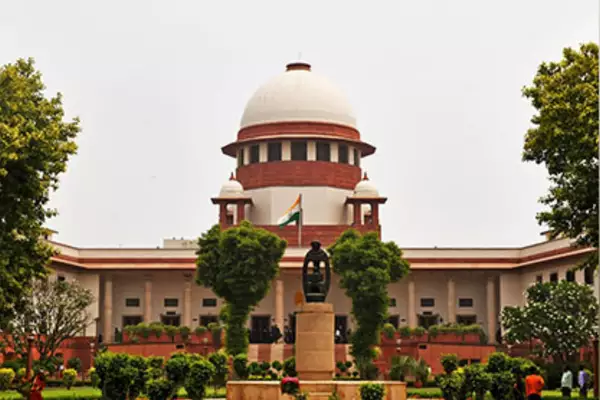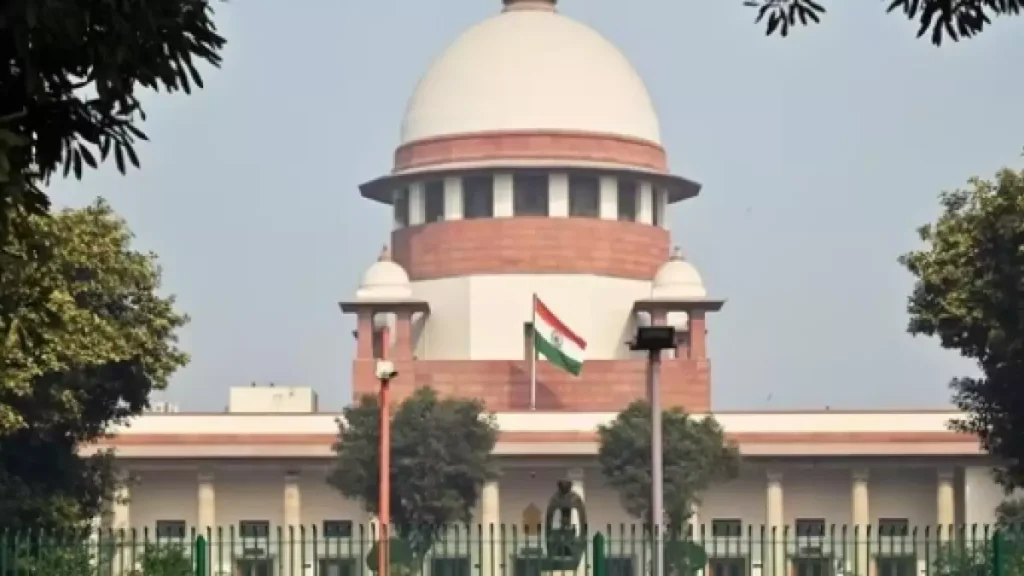In the Kishorchandra Chhanganlal Rathod case, the Supreme Court ruled that constitutional courts may review orders of Delimitation Commission if they are arbitrary and inconsistent with fundamental constitutional principles.
Key Observation by Supreme Court:
- The Supreme Court clarified that while Article 329 of the Constitution restricts judicial scrutiny, it does not impose a complete prohibition on reviewing the orders of the Delimitation Commission under Article 226.
- It underscored the court’s capacity to assess the constitutionality of delimitation orders if they appear manifestly arbitrary or inconsistent with constitutional values, providing necessary remedies to address any discrepancies.
- This interpretation aims to balance the judiciary’s role in electoral matters with the constitutional mandates, ensuring citizens have a venue to express their grievances without compromising the electoral process’s integrity.
About Article 329 of the Constitution:
- Article 329 forms a crucial part of the Constitution’s framework on elections, encapsulated in Part XV, which ranges from Articles 324 to 329.
- It specifically delineates the judiciary’s boundaries in electoral affairs, emphasising minimal interference to maintain the electoral process’s sanctity.
- Under Article 329(a), the judiciary is prohibited from questioning the constitutionality of laws regarding electoral delimitation or seat allocation.
- Furthermore, any challenges to election results in the Parliament or state legislatures are confined to election petitions as outlined in Article 329(b), which must adhere to legislatively prescribed procedures.
- This framework is complemented by the Representation of the People Act, 1951, which further details the adjudication of election petitions through the high courts, with provisions for subsequent appeals to the Supreme Court.
Supreme Court Judgements:
- Dravida Munnetra Kazhagam v. State of T.N. (2020): This case underscored that constitutional courts could intervene in electoral processes to facilitate elections or address instances of mala fide or arbitrary use of power.
- Meghraj Kothari v. Delimitation Commission (1966): This judgment established that judicial intervention should be restricted to prevent undue delays in the electoral process, clarifying that judicial review is not entirely prohibited in delimitation matters.
What is Delimitation?
- Delimitation refers to the process by which the number of seats and the boundaries of constituencies are determined for the Lok Sabha and state legislative assemblies.
- This task is assigned to the Delimitation Commission (or Boundary Commission), a high-powered body established under Article 82 of the Constitution.
- Delimitation Commissions in India have been formed four times: in 1952, 1963, 1973, and 2002, each time tasked with adjusting boundaries and numbers in response to demographic changes and other factors as mandated by law.
Ref: Source
| UPSC IAS Preparation Resources | |
| Current Affairs Analysis | Topperspedia |
| GS Shots | Simply Explained |
| Daily Flash Cards | Daily Quiz |
Frequently Asked Question:
What is Article 82 of the Delimitation Commission?
Article 82 of the Indian Constitution mandates the reallocation of seats in the House of the People (Lok Sabha) and the division of each State into territorial constituencies after each census to ensure fair representation.
What is the importance of the Delimitation Commission?
The Delimitation Commission is crucial as it ensures equitable representation by redrawing the boundaries of constituencies based on recent census data, thus reflecting demographic changes.
What are the 4 delimitation commissions?
The four Delimitation Commissions in India were set up in 1952, 1963, 1973, and 2002 to redefine the boundaries of parliamentary and assembly constituencies following the respective censuses.
Can the orders of delimitation Commission be challenged in a court of law?
While generally insulated from judicial review under Article 329 of the Constitution, the Supreme Court has ruled that orders of the Delimitation Commission can be challenged if they are manifestly arbitrary or unconstitutional.



